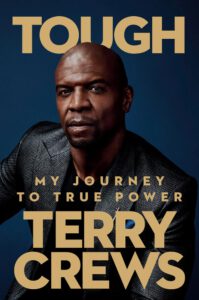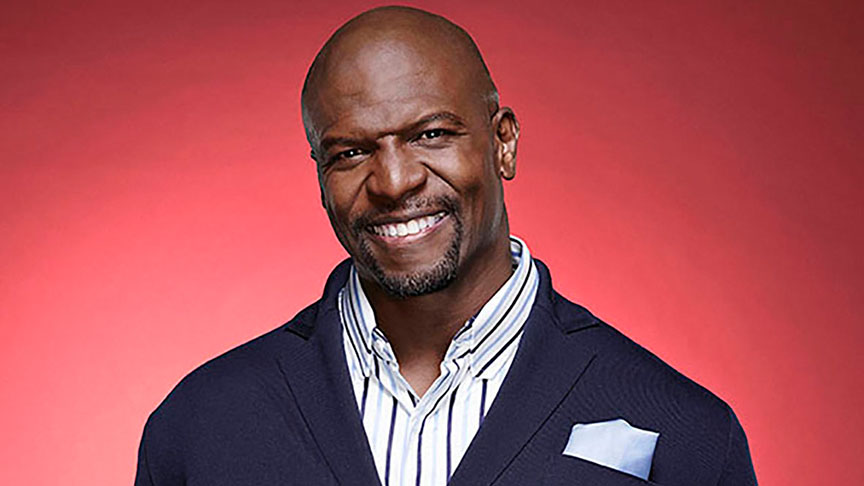I was so moved by Tough: My Journey to True Power by Terry Crews that I listened to it twice and will likely read it as well. It is loaded with wisdom. I now include Tough on every resource list I share with students, educators, coaches and parents. I grab every chance I get to recommend this book to people.
 “Suffer ‘til worthy” continues to be an expectation among boys and men. Despite significant efforts to nudge society toward change, social survival for boys and men is a challenging endeavor. Over the last few decades, many amazing organizations have been created with the intention of supporting boys and men as they navigate society’s expectations and norms. It turns out that the courage required by boys and men to openly engage with and seek support from these organizations is still socially risky. I think reading or listening to Tough by Terry Crews could inspire positive changes for individuals, schools, teams, communities and organizations.
“Suffer ‘til worthy” continues to be an expectation among boys and men. Despite significant efforts to nudge society toward change, social survival for boys and men is a challenging endeavor. Over the last few decades, many amazing organizations have been created with the intention of supporting boys and men as they navigate society’s expectations and norms. It turns out that the courage required by boys and men to openly engage with and seek support from these organizations is still socially risky. I think reading or listening to Tough by Terry Crews could inspire positive changes for individuals, schools, teams, communities and organizations.
Boys and men are desperate to be free from the pressure to conform to the specific male codes in their communities. The emotional courage demonstrated by Terry Crews in the telling of his personal story is powerful because he openly shares his struggles as a survivor of abuse, a porn addict and a “recovering chauvinist” as his wife describes him. Crews explores the powerlessness he masked for many years that was fueled by fear, insecurity and anger. Despite being successful by society’s standards, a series of events led him to wake up and begin the process of setting himself free from the burden of maintaining a false image.
Hearing the personal journeys of respected teachers, advisors, coaches and relatives inspires many boys and young men to shift their perspectives and gives them hope. Professional athletes, actors, musicians, artists, online influencers and authors also help boys steer toward a healthier path. As a public figure, Terry Crews happens to fit all of these categories and has chosen to use his fame and power for good. In addition to his success in films and on TV as well as playing on NFL teams for seven years, the multi-talented Crews is also a flutist and a gifted artist. Crews describes himself as having always been a sensitive guy who felt pressure to present himself as a tough badass in order to be accepted and avoid scrutiny.
Crews doesn’t hold back on exposing his faults, poor choices and misguided phases throughout his life; he takes responsibility for his role in slowing his personal development, but he also recognizes the impact of poor modeling by the adults in his life. According to Crews, “Nothing good happens when you leave young men to fill in the blanks.” His level of truth telling is admirable, but his openness about areas he still has to grow and heal is truly brave and makes him relatable.
Crews feels grateful that he has been able to repair his relationship with his wife, Rebecca after years of controlling his family with his temper. Referring to how his own parents raised him, Crews states that “The Controlled becomes the Controller” and has chosen to deeply engage in doing hard personal work to repair the relationships with his wife and kids. When a powerful talent agency tried to smear his reputation by digging up dirt on Crews after he publicly accused them of protecting sexual predators, they could not find anything that Crews hadn’t already shared.
Because he felt powerless as well as fearful at home and out in the world, Crews learned to endure pain, which served him in some situations but ultimately delayed his recognition of the deep, unhealed pain that interfered with his relationships. Terry and Rebecca were able to find a welcoming church with Christian values that aligned with their own, but his early experience with religion was not positive. As a child, Crews was required to attend a church with his mother where he learned that God and the Devil have all the power, and shame and guilt were used to keep people in line.
As a college student, a church with a similar dogma coaxed him to join, but he became disenchanted when his pastor betrayed him. After being promised he could confess his sins privately to the pastor, Crews found himself being scolded by a group of church leaders who had been told the details of his confession. He felt like those first church experiences operated like cults that cut people off from other influences and asserted their ideas as the only message in their ear, using shame and guilt to keep people trapped. It is admirable how Crews maintained both an open-mind and clear boundaries as he and Rebecca searched for a church that worked for them.
When Crews decided to use his success and advantage in service to others, his own life improved. Despite his financial advisor’s disagreement, Crews decided he would donate 10% of his earnings to support women and kids by funding shelters and scholarships. At the time, his career was not the booming success we know it to be today, and this decision required budgeting and a level of discipline Crews equates to working out at the gym. After reading about “tithings” in a book called The Richest Man in Babylon by George S. Clason, he understood the importance of paying it back and paying it forward. When he used his money to benefit humanity rather than buying status symbols, he found the virtue cycle shifted his mindset, which converted to more ease and success in his career and life. Crews admits that he spent a big chunk of his life trying to satisfy his ego, but when he decided to serve others, he felt nourished.
Here are some closing wise words from Terry Crews, “The purpose of being tough is not to attack, but to protect. The purpose of being strong is not to dominate but to support. The purpose of having power is not to rule but to serve. What I’ve learned is that to be a true man is to be the ultimate servant. With any talent or advantage that life has given you, whether by birth or by circumstance, your duty is to use that advantage in the service of others.”

